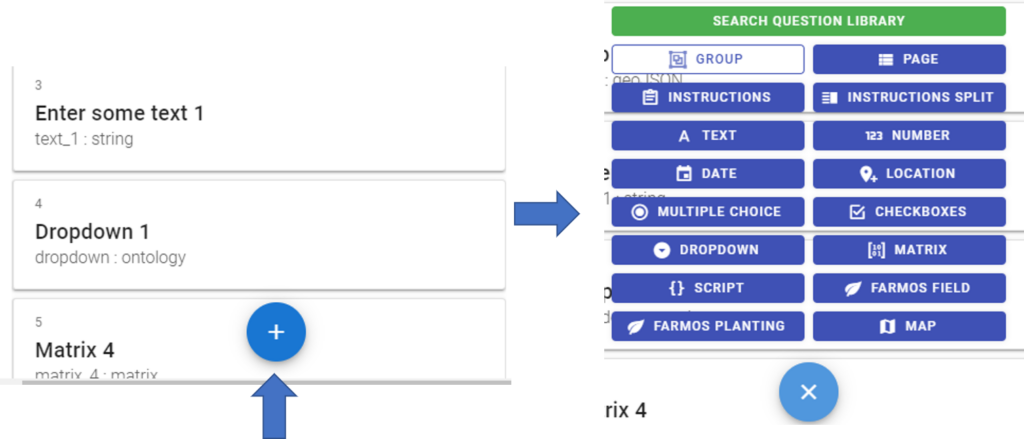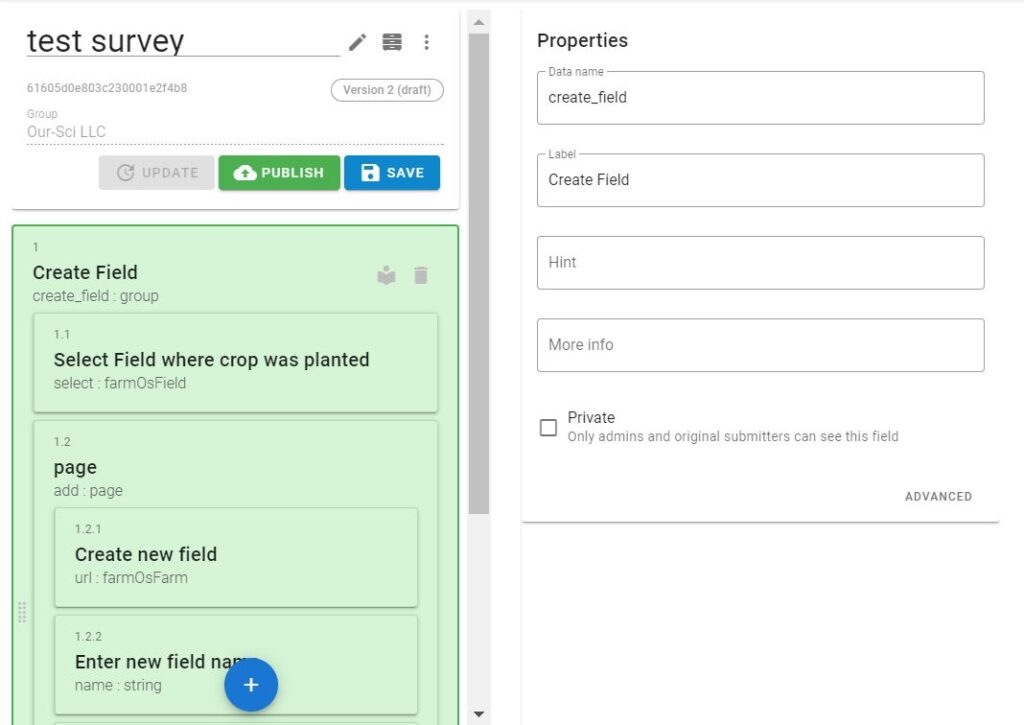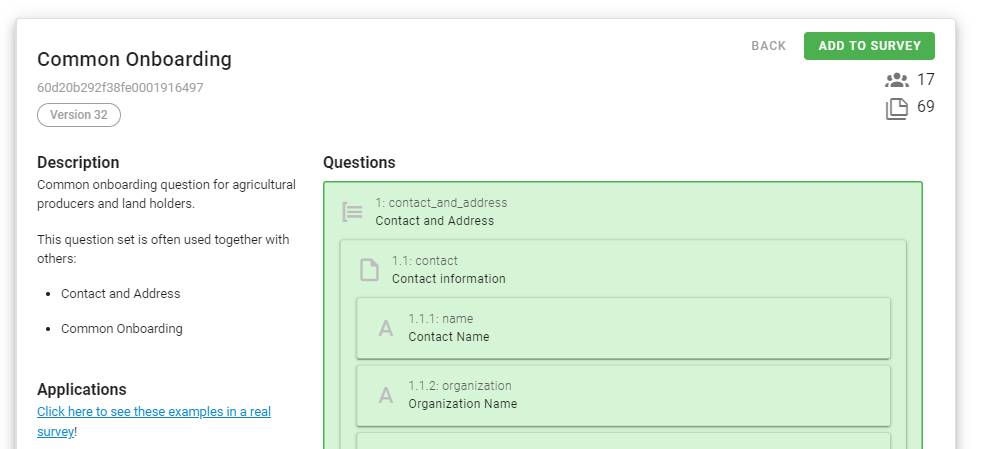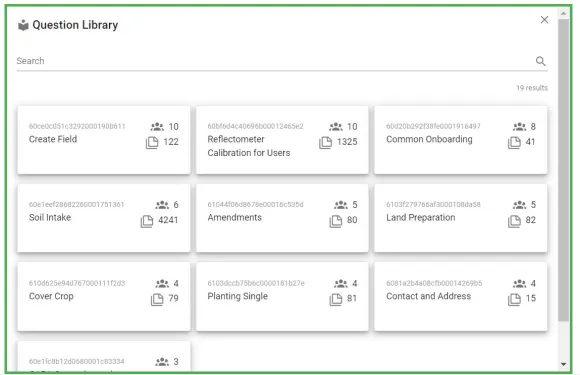SurveyStack’s newest development in flexible, replicable data collection.
What is the Question Set Library?
Since the earliest days of Our-Sci, we’ve pursued a central goal: “How can we create more democratic ways for communities to answer a common question about the world?” SurveyStack developed out of a need to make multiple methods of data collection and management accessible to diverse users; and the QSL is the next iteration of tools to support these projects.
After several years of survey creation with our partners, we saw a need for data comparability between data sets and between surveys- and saw an opportunity to avoid reinventing the wheel. The Question Set Library lets you drop pre-written questions into your surveys, and lets you build Question Sets around your area of expertise that other users can access. Simple, right? This alone saves hours of work, and gives us a massive boost in maintaining consistent data structures. But keeping in mind our broader goals of leveraging the data we collect for multiple uses, the QSL also functions as its own database. Regardless of where it is put, in two surveys or a hundred, all the data that comes in through a question set is accessible and analyzable as a whole.
How does it work?
You can use Question Sets that have already been created by other groups by selecting “Search Question Library” in the list of question types within the survey builder

Selecting a set will open a description and preview, and if you hit ‘Add to Survey,” it will appear highlighted in green within your survey. You can then change topical details such as the data labels to suit your needs, but the data names themselves will stay the same as in the original Question Set.

If you have your own set of questions that you’ve used and tested, and would like to contribute it to the library for others to access, congratulations! You’ve already done the hard part. Simply create a new survey that only contains the questions you want in the set. Then select the three dots next to the survey name and click “Add to library.” You’ll be prompted to include some information about your Question Set, and then will be able to decide permissioning, including whether users will be able to hide or modify each question. You can then take a look inside the Question Set Library and immediately see results from every survey that’s using a given set.
As an example, our Common Onboarding Question Set is currently used by multiple organizations including OpenTEAM, the Bionutrient Institute, and Regen1, across seventeen different surveys at the time of publication. This directly supports our goal of entering data once and using it hundreds of times, as well as making survey creation faster and friction-free.

What can we expect from the QSL in the future?
The Question Set Library is a crucial aspect of our upcoming Farmer’s CoffeeShop, a digital benchmarking tool for collaborative problem-solving. Many of the methodologies that will be used for comparison by farmers in the CoffeeShop will start as Question Sets, allowing users to create custom surveys that bring together multiple group’s practices, while making sure the data structure stays consistent.
We have found that different groups may be employing slightly differing methodologies for the same metric, so we’ve created a space on the GOAT Forum to share ideas and connect on practices. The goal of this forum space is to have discussions about comparability of results and identify a cohesive method to translate into a SurveyStack Question Set (for instructions on how to use the Forum, see this video).

Beyond that, we can push information from the Question Set Library using an API–so the sky’s the limit for other potential uses!
How can I get involved?
The QSL is new, so our biggest challenge at the moment is populating the library. Its utility grows with each addition, so we’re actively looking for contributors who have field-tested methodologies they’d like to make available for others to use. Contact emily@our-sci.net for a walkthrough, or adie@our-sci.net if you have a methodology you’d like to contribute.

